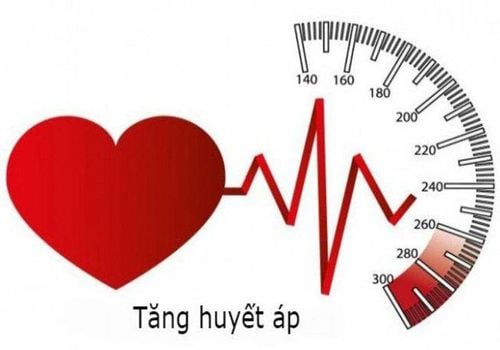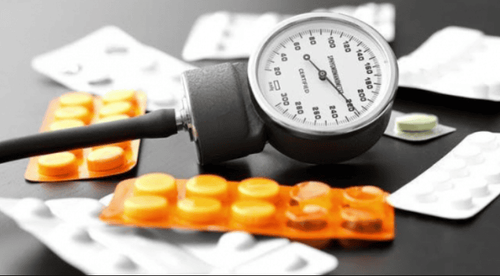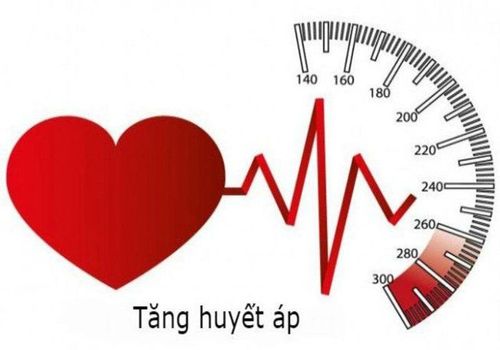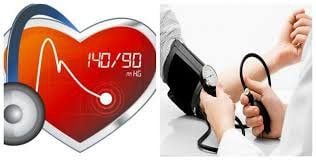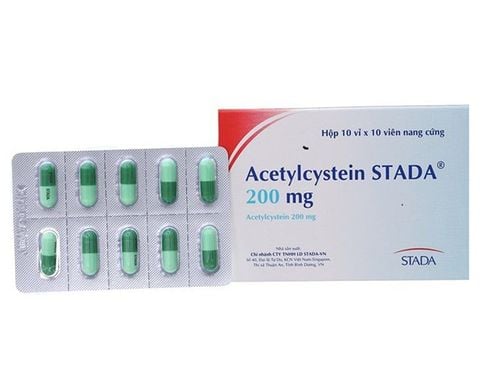This is an automatically translated article.
The article was written by MSc Vu Thi Tuyet Mai - Cardiologist, Cardiology Center - Vinmec Central Park International General Hospital.The causes of high blood pressure in most people are still unclear. 90% of cases of hypertension are primary (idiopathic). It has been found that hypertension becomes more common as we age and a number of other habits can lead to high blood pressure such as: sedentary lifestyle, high salt diet, heavy alcohol consumption, obesity, frequent stress.
1. What causes high blood pressure?
Hypertension is also hereditary. The remaining 10% are hypertension secondary to several causes:
Kidney disease: acute glomerulonephritis, chronic glomerulonephritis... Endocrine: Adrenal cortex disease, cushing's syndrome, conn's syndrome , adrenal myeloma (pheochromocytome), hyperthyroidism Cardiovascular disease: Coarctation of the aorta, renal artery stenosis, aortic regurgitation Drugs: Contraceptive hormones, licorice, corticosteroids, anorexia agents, Antidepressants due to pregnancy
2. How to measure blood pressure?
When you go to the doctor, your doctor or nurse will measure your blood pressure (you can also check your own blood pressure at home). Blood pressure is measured with a mercury sphygmomanometer, which includes a stethoscope, cuff, meter, pump, and valve.
We can also measure blood pressure with an electronic sphygmomanometer. Blood pressure readings are measured in millimeters of mercury (mmHg), with systolic pressure (higher pressure when the heart beats) and diastolic pressure (lower pressure when the heart relaxes); for example, 120/80 mmHg, or 120 over 80 mmHg.
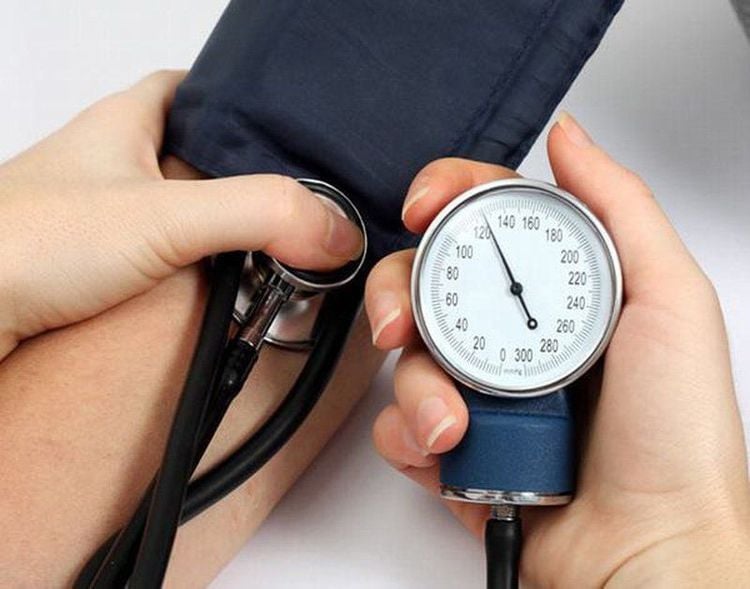
Chỉ số huyết áp được kiểm tra bằng bằng máy đo huyết áp thủy ngân
3. What is the normal blood pressure?
The US National Committee on the Prevention, Detection and Treatment of Hypertension (JNC) has classified blood pressure levels as follows:
Normal blood pressure: less than 120/80mmHg Prehypertension: 120-139 /80-89mmHg Hypertension: over 140/90mmHg
4. What diseases are associated with hypertension?
Some serious diseases are related to hypertension such as:
Atherosclerosis: is a disease of the arterial system caused by the accumulation of plaque, or fatty, on the endovascular walls of the blood vessels. blood vessel. Hypertension contributes to this build-up by placing extra strain and pressure on the vessel walls. Atherosclerosis can lead to heart attack and stroke. Heart disease, including: heart failure (heart can't pump enough blood), ischemic heart disease (heart muscle tissue doesn't get enough blood) and hypertensive hypertrophic cardiomyopathy (enlarged heart). Kidney disease: High blood pressure damages the blood vessels and filters in the kidneys, from which the kidneys cannot excrete waste products, kidney failure. Stroke: High blood pressure can lead to stroke by causing atherosclerosis (leading to embolism and/or thrombosis) or weakening the vessel walls leading to aneurysm or rupture (hemorrhage). Eyes: Eye disease can occur because high blood pressure damages the very small blood vessels in the retina of the eye.

Bệnh lý xơ vữa động mạch có liên quan đến tăng huyết áp ở người bệnh
5. How do I know I have high blood pressure?
High blood pressure usually doesn't cause any symptoms, so you can't feel it. Therefore, high blood pressure must be diagnosed by a medical professional. If your blood pressure is very high, you may experience unusually severe headaches, chest pain, and heart failure (especially shortness of breath and inability to exercise). If you have any of the above symptoms, get emergency treatment right away.6. If I have high blood pressure, how should I treat it?
Treatment of hypertension is usually with lifestyle changes first and, if not controlled to the target blood pressure (< 140/90 mmHg) with medication.
Lifestyle changes include:
Lose weight Quit smoking A healthy diet, such as one to lower blood pressure, reduces salt intake. Exercise regularly (such as brisk walking) Limit alcohol (no more than 2 glasses of wine a day for men, and 1 drink a day for women or adults 65 years and older) High blood pressure medications include These include the following: ACE inhibitors (ACE-i), angiotensin receptor blockers, diuretics, beta blockers, and calcium channel blockers.

Chế độ ăn uống khoa học giúp bạn hạn chế nguy cơ mắc bệnh tăng huyết áp
7. What are the side effects of antihypertensive drugs?
Like any medicine, antihypertensive drugs also have side effects. Any medication used to lower blood pressure can cause lightheadedness or dizziness if blood pressure drops too low.
Other side effects include:
Diuretics: increased urination, hypokalemia ACE inhibitors: dryness, persistent cough, hyperkalemia Angiotensin receptor blockers: cause hyperkalemia Calcium channel blockers : bradycardia, constipation, ankle edema Beta-blockers: decreased libido, drowsiness, bradycardia
8. What diet should I follow if I have high blood pressure?
A diet that can lower blood pressure includes the following steps:
Eat more fruits, vegetables and low-fat dairy foods Eat less foods with high cholesterol and saturated fat such as: like fried foods Eat more whole grains, fish, poultry, and nuts Eat less red meat and less sugar Eat foods high in magnesium, potassium, and calcium Reduce salt

Chế độ ăn giảm muối giúp người bệnh cải thiện tình trạng huyết áp cao
9. When do I need to see a doctor?
If you are diagnosed with high blood pressure, it is important that you see your doctor regularly.
In particular, the following cases:
If you do not respond well to treatment, your blood pressure is still high, in this case there may be other disorders that cause high blood pressure Or when you experience side effects from medications treatment, the doctor will adjust the dose of the drug or change to another drug.
10. What drugs can cause high blood pressure?
Medications to treat other conditions that can cause high blood pressure such as: amphetamines, Ritalin, corticosteroids, hormones (including birth control pills), cyclosporine, and erythropoietin.
Other over-the-counter medications such as cold and flu medicines, asthma and appetite suppressants can also cause high blood pressure.
Vinmec International General Hospital currently has two packages of hypertension examination for you to choose from: Basic Hypertension Examination Package and Advanced Hypertension Examination Package.

Định kỳ kiểm tra sức khỏe tim mạch giúp người bệnh sớm phát hiện bệnh lý bất thường
The article references the source:
JNC 8 guidelines Food and Drug Administration. High blood pressure (Hypertension) National Heart, Lung, and Blood Institute. What is the DASH eating plan? Vietnamese internal pathology





